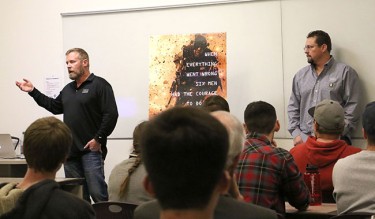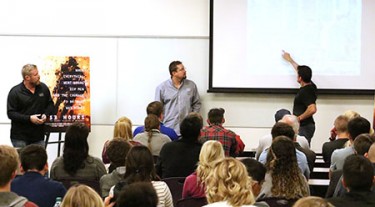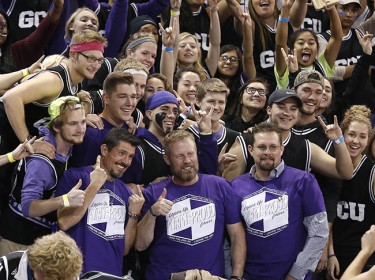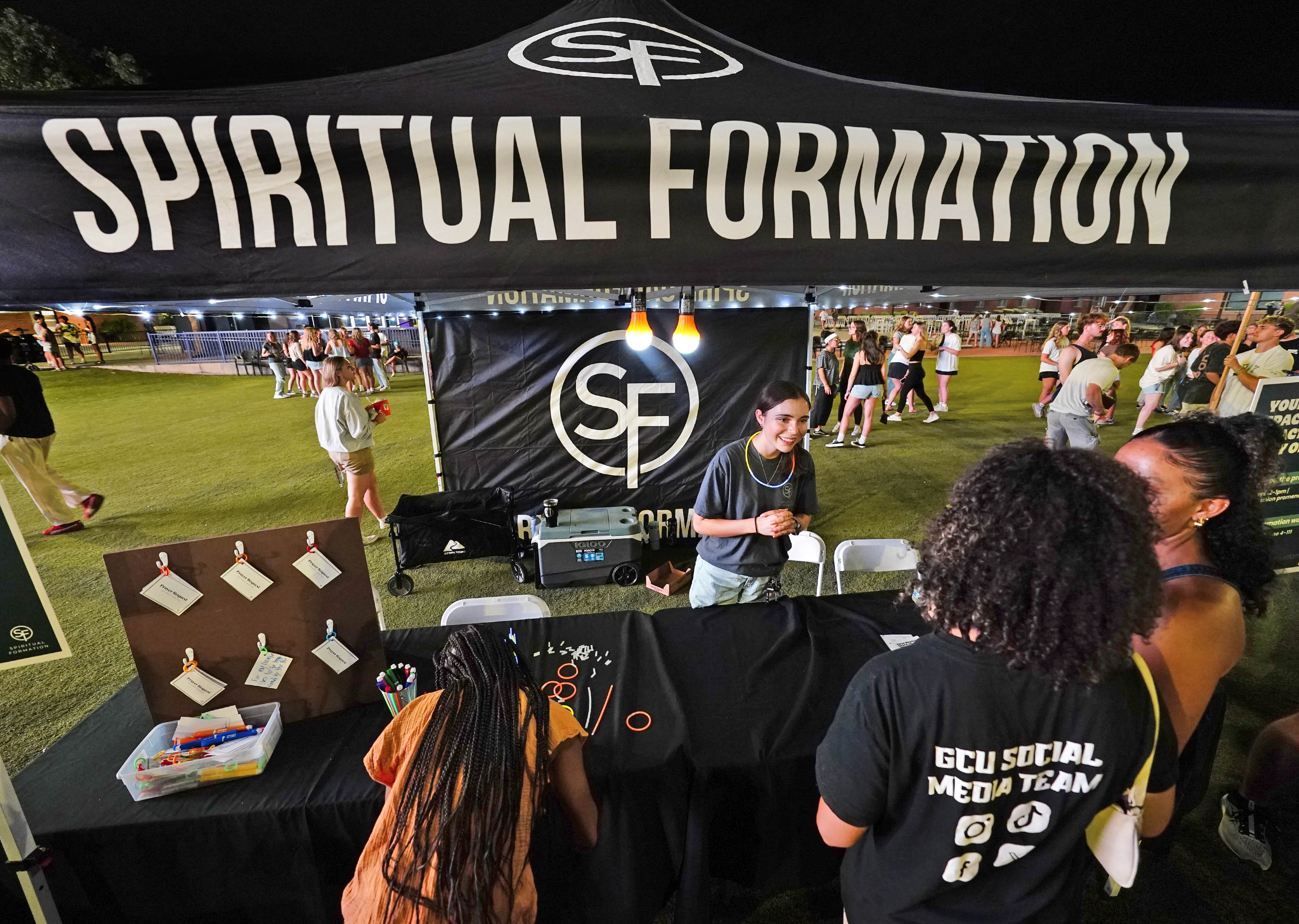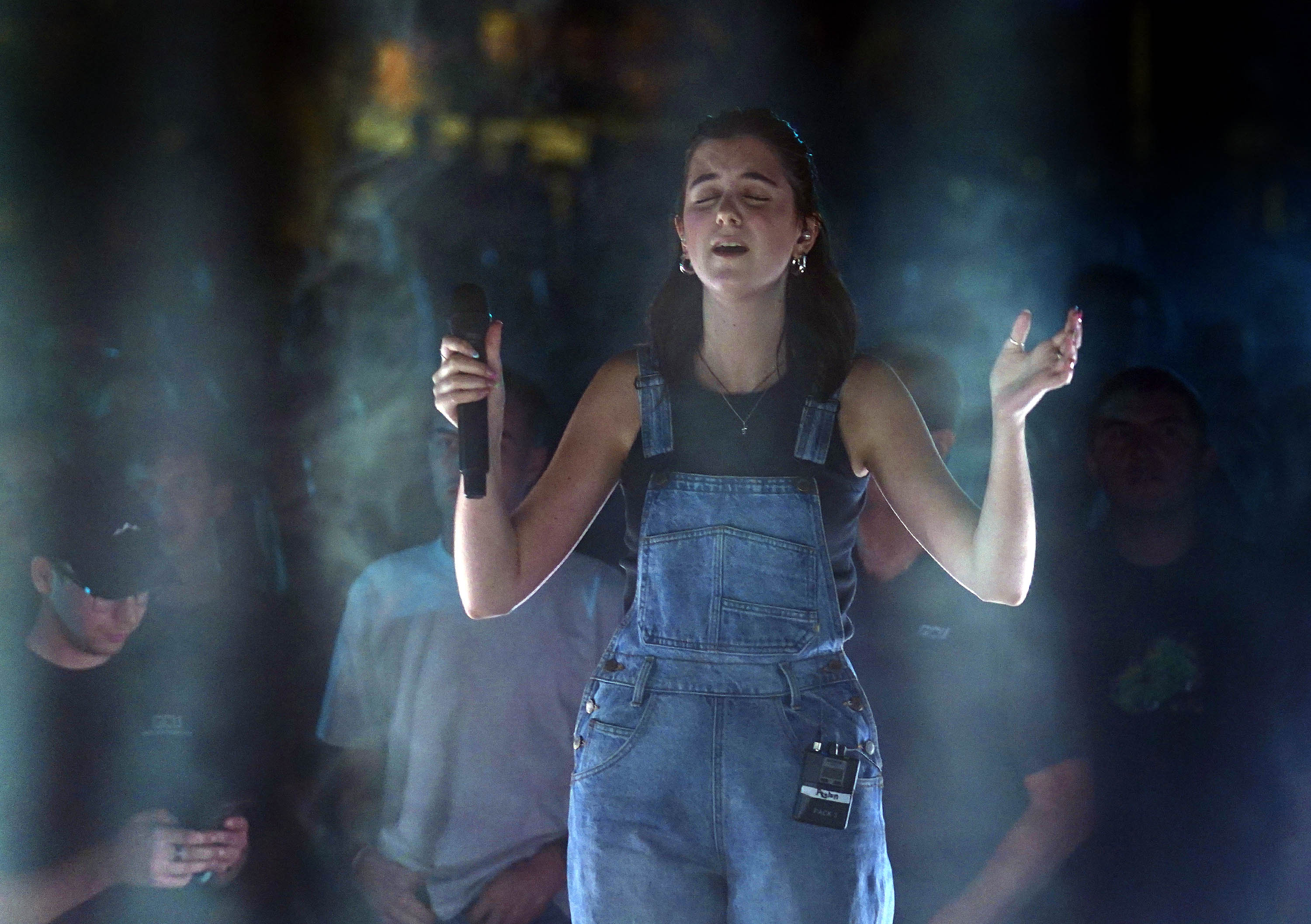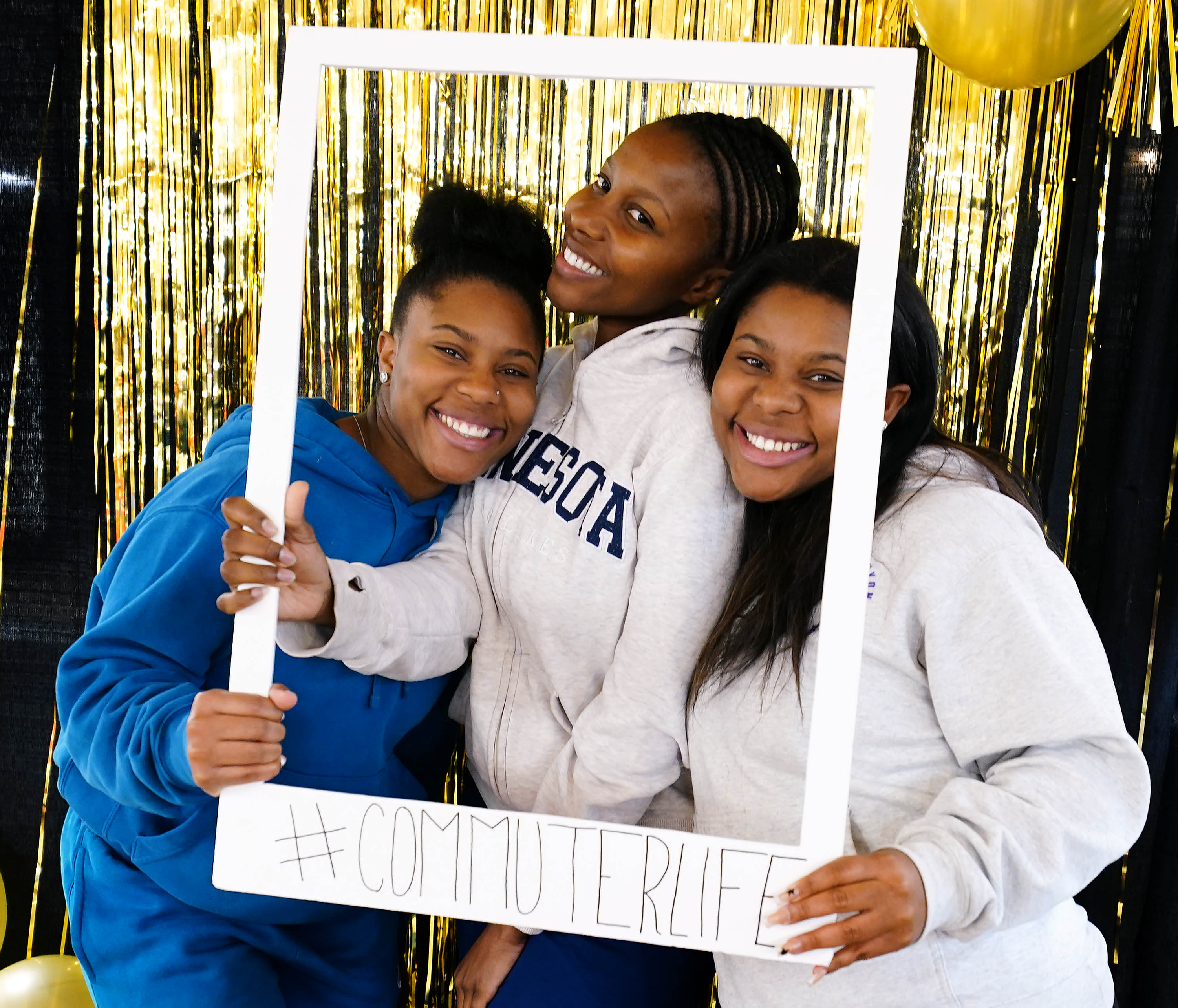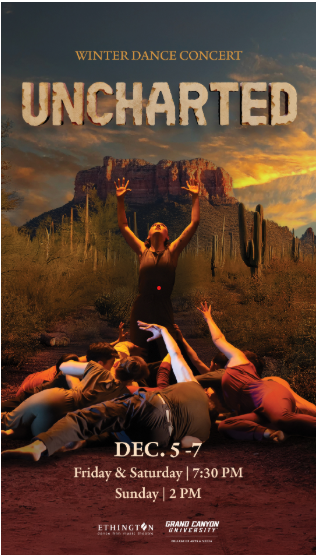Story by Janie Magruder
Photos by Emily Saunders
GCU News Bureau
The sound and fury of war — ear-deafening explosions, smoke that clouds the vision and burns the eyes, spraying shrapnel that stings the skin and searing mortars that tear the flesh — are as bad in real life as you’ve seen in over-the-top films.
Worse, in fact, according to three private security contractors who helped fight off a terrorist attack on and protect Americans stationed at the U.S. diplomatic compound in Benghazi, Libya. Marine Corps veterans Mark “Oz” Geist and John “Tig” Tiegen, and former Army Ranger Kris “Tanto” Paranto recounted the events of Sept. 11, 2012, during a presentation Tuesday evening at Grand Canyon University.
The talk drew a rapt, standing-room-only crowd of GCU student veterans and others who got the insider story of a military assault that resulted in a Congressional investigation of the Obama administration’s actions leading up to the attack. U.S. Ambassador J. Christopher Stevens, Sean Smith, U.S. Foreign Service management officer, and two CIA contractors, Tyrone S. Woods and Glen Doherty, died during the strike.
In addition to talking about their heroics at the compound, Geist, Tiegen and Paranto promoted their book, “13 Hours: The Inside Account of What Really Happened in Benghazi,” co-authored by Mitchell Zuckoff, a former Boston Globe reporter. A brief trailer of the film, “13 Hours: The Secret Soldiers of Benghazi,” due out next year, also was screened. The movie was directed by Michael Bay, who is known for big-budget action films that use extreme special effects, such as “Armageddon” and “Pearl Harbor.”
Following their talk and a brief Q-and-A, hosted by the GCU Veterans Center, the men were introduced and met with a standing ovation at the GCU men’s basketball game on campus.
Geist, whose hand was nearly severed during the battle, said the men collaborated on the book because “the story got hijacked by the politicians. … What made me angry is we had four Americans who served their country and died, and the honor and respect due to them got lost in the spin.”
The trio took turns recounting the 13 hours of warfare that began at 9:30 p.m. Sept. 11 with blasts that interrupted an otherwise peaceful night. The calm quickly devolved into chaos, and the security team of six was told to “stand down.” But when they heard the desperate call of a comrade inside the building, with the whereabouts of Stevens unknown for several hours, the team “bucked the order” and advanced.
“We did what we needed to do,” Paranto said.
As the night wore on, there was a barrage of firefight and explosions and, despite the use of night-vision goggles, it was nearly impossible to detect friend from foe. At one point, an armored vehicle of State Department employees screeched through the streets, en route from the consulate building to the CIA annex, Geist said. They passed an al-Qaida safe house, whose inhabitants opened fire, he said.
“When they pulled in, you could see the fear on their faces. They were headed to full-blown panic,” Geist said.
During down time between the explosions and gunfire, the men had time to think about their families and make peace with God, Paranto said. “You don’t whine and complain. No, ‘Oh, this sucks.’ If you do that, you won’t live. You just never quit,” he said.
After rescuing the survivors at the compound and removing the bodies of the dead Americans, the team headed to the airport and left Benghazi, about 13 hours from start to finish.
Bay consulted the contractors on both the script and the production of the film, and the Geist, Tiegen and Paranto said Tuesday they are happy with the outcome. But they cautioned that real war is much worse than depicted in a Hollywood movie.
“The explosions, the bodies burning, the fire, guys getting vaporized on the roof (in movies) — that’s what happens (in reality),” Geist said. “I think it’s even worse in real life.”
Contact Janie Magruder at (602) 639-8018 or [email protected].

